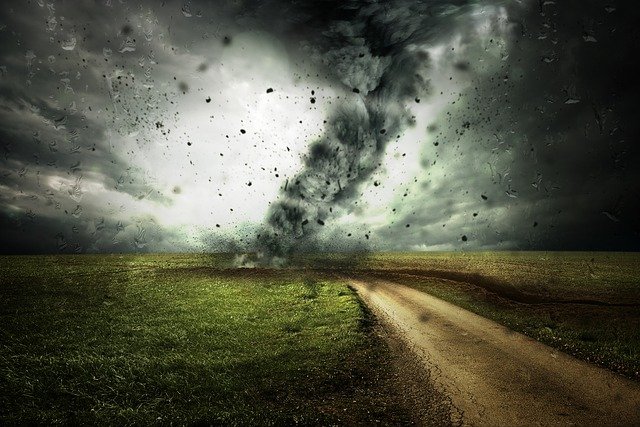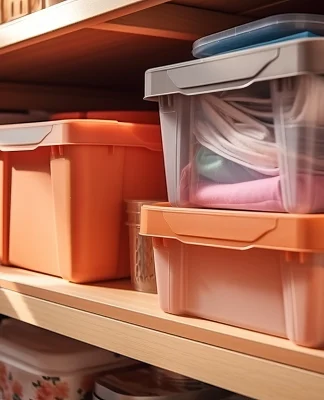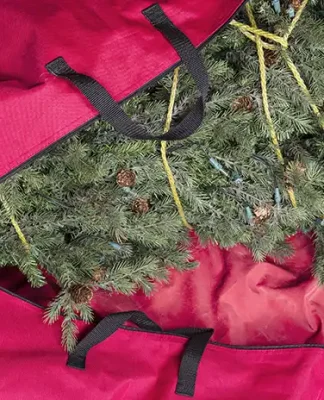Natural disasters happen every day, all over the world. Some are mild, while others leave people without homes, separated from their families, or in dire need of medical assistance. While the chances of these types of situations occurring are higher for those living in certain areas, emergencies can happen anywhere. To make sure that you’re ready for anything, here’s how to prepare for an emergency evacuation.
Home Preparation Basics
Before an emergency actually happens, there are certain things that you can do around your home to make sure that you and your family are prepared. This is not to say that you should live your life as a doomsday prepper, but it doesn’t hurt to take small actions that could pay off later.
Educate Yourself
One of the first things you should do whenever you move is to educate yourself about your local weather. Different states experience different types of natural disasters. Some towns are located on earthquake fault lines, others are in tornado alley, and some are at risk for flooding or even hurricanes. Knowing what you may have to deal with ahead of time will help you make sure you’re ready.
Keep Up with Maintenance
 Taking care of your home through regular maintenance will help you ensure that it’s strong enough to withstand at least minor distress. Make sure that your roof is in good condition and that your windows are up to grade for your area. There are options for hurricane shutters and windows in areas that need them, which is a good investment for homeowners.
Taking care of your home through regular maintenance will help you ensure that it’s strong enough to withstand at least minor distress. Make sure that your roof is in good condition and that your windows are up to grade for your area. There are options for hurricane shutters and windows in areas that need them, which is a good investment for homeowners.
Understand Your Emergency Alert System
Familiarize yourself with your town’s emergency alert systems so that you understand how your area will broadcast weather alerts. Always make sure that you communicate these alerts with family, especially younger children, so everyone understands what to do if they hear sirens or get a phone notification.
Prepare Important Documents
 Keeping important documents together and in one place is a good idea for several reasons. It’s less likely that you’ll misplace things, and everything will be where you need it in case of an emergency. Store all of your important papers like passports, medical history, details about medical conditions, your house’s deed, social security cards, and health insurance cards in one location.
Keeping important documents together and in one place is a good idea for several reasons. It’s less likely that you’ll misplace things, and everything will be where you need it in case of an emergency. Store all of your important papers like passports, medical history, details about medical conditions, your house’s deed, social security cards, and health insurance cards in one location.
Pack an Emergency Bag
If an emergency strikes, you don’t want to hesitate when trying to think about what you need. Therefore, it’s a good idea to pack at least a basic emergency bag ahead of time. Some of the essential items to include in your bag include a first aid kit with any medications that you’ll need, medical supplies, a flashlight with batteries, backup cell phone batteries, chargers, wet wipes, several face masks, and enough water and non-perishable food to last each person three days.
What to Do in Case of an Emergency
Throughout the course of our lives, many of us will not be faced with situations that require emergency evacuations. However, that’s not to say that it’s impossible. In case of an emergency, make sure that you’re prepared by following some basic guidelines.
First, it’s important to be able to differentiate the threat level. Some emergencies are not as immediate as others. For example, in the case of a slow-moving fire, you have time to get your things in order and get out. The same applies to a slow approaching hurricane. You may have enough time to prepare your home prior to evacuating, but always address the threat before you waste time doing so. If feasible, you can secure hurricane shutters, add sandbags to reduce the impact of floods or small fires, and move anything valuable off of the first floor for flooding precaution. Some other things that you can do if there’s time include the following.
Turn Off Utilities
When there’s additional time to combat the threat, try to remember to turn off the utilities. Doing so can help reduce the chances of an electrical fire, additional flooding, gas leaks, and more. It’s a simple step, but one that can save lives. If you return to your home after an emergency, always check for potential gas leaks prior to using an electrical outlet or lighting a flame.
Move Chemicals
 When stored properly, chemicals aren’t a major concern for further problems during a natural disaster or emergency. However, if they’re lower in your home, they can increase the chances that floodwater becomes contaminated and therefore, harmful to your home and your family upon return. Move any chemicals in flood emergencies or store them higher in your home if you live in an area prone to flooding.
When stored properly, chemicals aren’t a major concern for further problems during a natural disaster or emergency. However, if they’re lower in your home, they can increase the chances that floodwater becomes contaminated and therefore, harmful to your home and your family upon return. Move any chemicals in flood emergencies or store them higher in your home if you live in an area prone to flooding.
Protect Valuables
Aside from the valuables that you have in your emergency bag, make sure that you protect those left behind. This may mean moving them up to the second story in your home, or it may mean keeping certain items in a self-storage unit for safe keeping. Self-storage units aren’t emergency-proof, but they provide an alternate location for antiques and larger items with sentimental value. When using a self-storage unit, just make sure to take the proper care for storing antiques, wood, and other nostalgic items.
Pack Essentials
Even if you have an emergency kit ready, you’ll still need to pack the essentials when leaving—if there’s time. This includes credit cards, cash, hygiene products that you use every day, anything you’ll need to take care of your children, a change of clothing, comfortable footwear, sleeping accessories, keys, and a few sentimental items that are easy to carry. If you have pets, make sure that you have their ID tags along with any medications they may need, food and water, and a leash or carrying case to keep them close.
Don’t Stress About Inconsequential Items
During this time, it’s likely that you’ll start to pack a lot of inconsequential items that you think are important. Remember that almost everything is replaceable, so don’t waste time with things that won’t matter in one or two weeks.
Evacuate in Dire Situations
 If there’s absolutely no time, it’s important that you evacuate immediately. Disasters don’t wait and to make sure that you and your family are safe, it’s essential that you get out of your home while you’re safely able to do so. If you already have an emergency bag packed and it’s accessible, grab it and go. If it’s not accessible or ready to go, move as quickly as possible ensuring that all members of your family are accounted for.
If there’s absolutely no time, it’s important that you evacuate immediately. Disasters don’t wait and to make sure that you and your family are safe, it’s essential that you get out of your home while you’re safely able to do so. If you already have an emergency bag packed and it’s accessible, grab it and go. If it’s not accessible or ready to go, move as quickly as possible ensuring that all members of your family are accounted for.
While these steps are a great starting point to respond to an emergency, do not prioritize them above any government instructions or warnings. There are a lot of factors that need to be considered in terms of evacuation for emergencies, so listen to authority instruction first.
Getting Back to Normal
The days following an evacuation can feel trancelike. Once it’s safe to return to your home, you may be dealing with both emotional and financial hurdles. Severe disasters and emergencies can leave a long-lasting impression on individuals and families, regardless of the events that took place. To begin trying to regain normalcy, you’ll first need to reach out to your insurance provider to file a claim on any damages your home may have incurred. During this time, try to cut back on unnecessary expenses and limit your spending to essential items. You may be able to defer to a mortgage forbearance while you get back on your feet or you may decide that it’s best to move.
Regardless of how you decide to move forward, The Lock Up Self Storage can help. We provide short- and long-term leasing options for self-storage units of all sizes, giving you the perfect place to store excess furniture during your transition. Whether you plan to downsize your home, clear space to rent out a room, or simply want to move some of your more sentimental furniture out of your home, The Lock Up has a storage unit for you. We have multiple locations around the U.S. and offer flexible leasing options alongside a variety of storage sizes. All of our units are temperature controlled and climate controlled to keep your things in the best condition possible. To give you even more peace of mind, our locations are equipped with top-of-the-line security features. Our secure self-storage facilities feature security-controlled gate access, motion-sensitive lighting, 24-hour camera monitoring, and perimeter alarms. Many of our locations offer electronic coded access specific to each tenant. To find a self-storage unit, contact one of the representatives at The Lock Up Self Storage by calling us at 1-866-327-LOCK or find a unit online today!


















